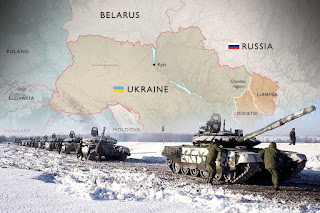The recent invasion of Ukraine has resurfaced lingering questions believers have about the sovereignty of God. How can a good, loving, just God seemingly sit back while innocents suffer at the hands of a political juggernaut? How do we process recent events in light of the clear Biblical claim that God is sovereign over the nations? How do we make sense of scriptures like Daniel 2:21, “He changes times and seasons; he deposes kings and raises up others;” and Romans 13:1, “The authorities that exist have been established by God”?
I don’t have the answer, but I can propose a response - one that goes back centuries to an Old Testament prophet named Habakkuk. Let it be known that we are not the first to wrestle with this apparent contradiction, nor will we be the last.
Habakkuk asked the same questions we are asking. In his case the evil nation was powerful Babylon who decided to flex their ungodly muscles at the expense of God’s chosen people, the Israelites. None of it made sense. I recommend you read this brief book. It's relatively obscure even to the churchgoing, but it is so relevant for these theologically confusing days.
The book opens with the prophets charge against God: "Why do you make me look at injustice? Why do you tolerate wrongdoing? Destruction and violence are before me; there is strife, and conflict abounds?” (1:3) Quite a bold opening line to the God of the universe. And then he delivers this follow-up question: “Why then do you tolerate the treacherous? Why are you silent while the wicked swallow up those more righteous than themselves?” (1:13) The rest of the book is a dialogue between the prophet and God.
Like Habakkuk we are confused and perhaps even angry that this world works like it does. This little book gives us permission to be angry and confused. This minor prophet, as he is sometimes called, reminds us that this world often doesn’t make sense. This dialogue ultimately calls us to remain patient and trust – difficult tasks when the world is caving in around you. It takes faith to live in this world. Faith in a God who is in control even when all appearances seem to contradict that foundational belief.
The book ends with one of the most magnificent statements of faith preserved for us in the Sacred Writings. Habakkuk’s conclusion is this: “Though the fig tree does not bud and there are no grapes on the vines, though the olive crop fails and the fields produce no food, though there are no sheep in the pen and no cattle in the stalls, yet I will rejoice in the Lord, I will be joyful in God my Savior.” (3:17–18)
Confused? Yes. Angry? I would think so. But through the confusion and anger the prophet finds room for praise and, in doing so, calls all the faithful to join him.
